Bringing home your first cow to your farm or homestead can be very exciting! There is a lot to learn if you are new to raising cattle. While your cattle knowledge will grow with experience, there are a few things that can be helpful to know from the beginning. Learn 10 things you will need to know about raising beef cattle NOW so you can plan ahead.
Note: This post contains affiliate links. If you purchase through a link, Hickory Hollow Farm will receive a small commission, at no additional cost to you, used toward keeping our recipes and country life coming to your inbox! I only recommend products I appreciate and trust. Thank you for your support! Full disclosures here.
When you search online for a guide to raising cattle for beginners or raising beef cattle for beginners, you will get a lot of information. I always like to know who I am taking advice from, so I’ll just give you a brief introduction. Currently, my husband and I raise and sell beef cattle direct to local families for freezer beef. My husband has always had his hand in grain or cattle farming. I was raised in the city, so I had a steep learning curve when we started raising cattle.
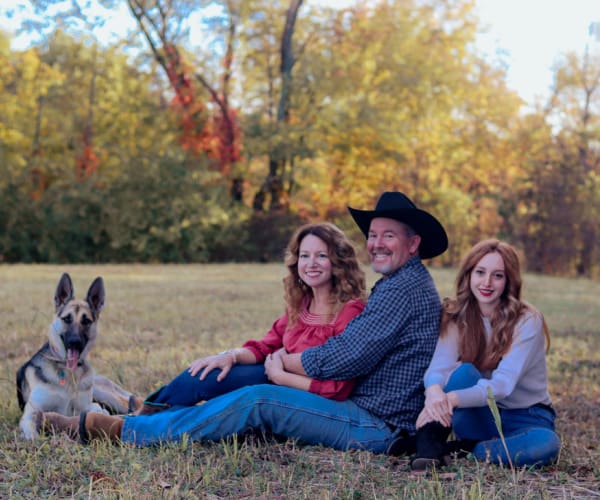
About six years ago, we started raising cattle of our own, selling beef direct to customers. We have successfully built a thriving cattle business. So we have experience with raising beef cattle as well as how to market our cattle to turn a profit from our farm.
Correct Cattle Terms
Before we get too far, I do want to cover a couple of terms. Cow is a female that has given birth. Heifer is a female that has never been pregnant. Bull is a male. Steer is a male that has been castrated. However for this post, I will sometimes use the term cow in reference to a single animal, just to keep it easier to follow along.
What is Beef Cattle Farming
Beef cattle farming is raising cattle for the purpose of processing them into beef. Cattle farming can cover a wide range of stages, from calving to finishing cattle out for processing.
When you decide to raise beef cattle, you will want to explore all the ways you can be involved in raising cattle to see what fits best for you taking into account your family’s goals and the land you have.
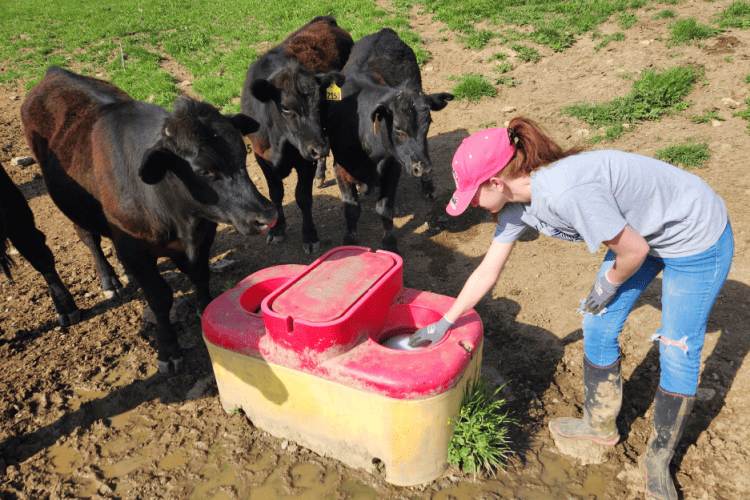
At Hickory Hollow Farm, we are a cow/calf operation. The majority of the steers that we sell are born on our farm. In the winter, we put several bulls in with our momma cow herd. Then we have our calving season (when the calves are born) during the fall.
Know Your Farm Goals
Before you bring home your first cow, or shortly after, it helps to identify what your farm goals are. This will help you plan, know when to keep an animal, when to buy more, how to handle their care, and when to sell a cow.
Do you just want a few cows so your children will learn how to care for livestock? What do you hope to accomplish by raising beef cattle?
Here are some reasons people raise cattle:
- 4H Project – Some families like to show animals for 4H.
- Hobby Farm – Cattle make lovely animals to add to a hobby farm and teach children about caring for animals.
- Sustainability – Raising beef cattle for your family can be a smart way to use your land and become more self-reliant.
- Farm Business – Raising and selling beef cattle can bring in a nice part-time or full-time income.
The sooner you know your farm goals the easier it will be to make decisions. Cattle eat a lot of grass and hay. And cattle have times when they require a lot of care. So knowing your farm goals will help with setting up how you care for them, what you feed them, when you may need to sell your cattle, and what equipment in which to invest.
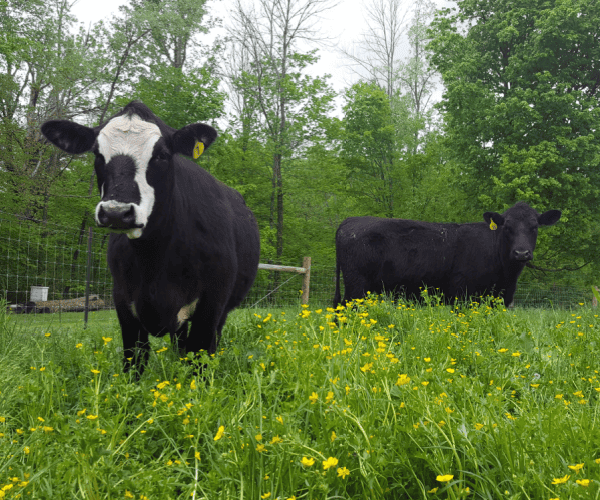
For example, we are a cattle farm business. This means that if we have an animal that is not being finished out for freezer beef or pregnant, they may need to be sold. We occasionally have had a heifer that did not get pregnant and we choose to keep them another year, believing they will get pregnant the next year.
But it order to run a successful business we cannot feed full grown cows year around that are not providing income in some way. Otherwise, we would run out of money and not be able to take care of the animals well.
Different Stages of Cattle Farming
Let’s explore the different stages of cattle farming. On our farm, we cover every stage from calving to finishing out some of our cattle for freezer beef.
But when raising beef cattle, you can choose to focus on just one area. You can have a momma herd and focus on calving season and then selling 400lbs weaned calves. Or you can buy 400lb calves and let them eat your grass all summer and then sell them at auction in the fall. Or you can buy cattle that are ready to be finished out for freezer beef and put on grain for several months.
If you want to raise beef cattle for your family, you may decide to purchase weaned calves and focus on finishing the animals out on grass or a combination of grass and grain. If you are raising cattle as a side business then you may choose to do the same on a bigger scale or you can choose another phase of raising cattle
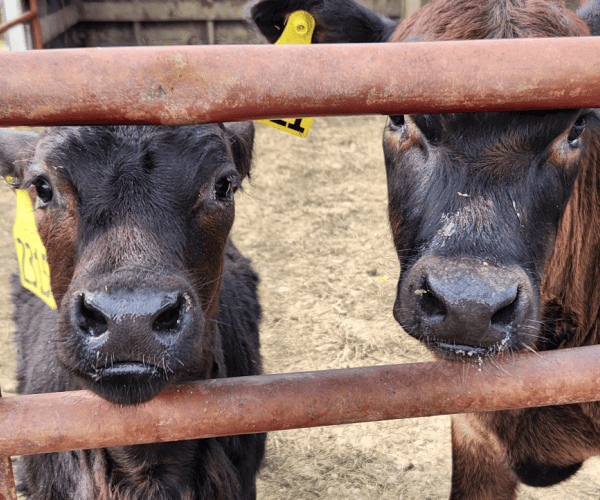
On Hickory Hollow Farm, we enjoy getting to see all the seasons of a cow’s life. But it is more work to care and feed cattle during the winter months. However, it does allow us to control the health and diet of our cattle when they are born and raised on our farm.
What Cattle Breed is Best for Your Farm
The two main varieties of cattle are dairy and beef. But within that there are a ton of breeds. Typically Angus, Herefords, Charolais, and Limousin are beef cattle that I hear about in our area. But there are many breeds. On our farm, we raising Angus beef cattle along with a few Charolais. Angus provide excellent meat. They are fairly even tempered and do well in our Midwest climate.
Right now you can’t go anywhere without seeing those cute Highlander cows. And if you just want a hobby farm or a farm business that has a “farm zoo”, Highlander cows may make an adorable addition. However, if you are raising beef cattle as a business, you may need to research to see if the Highlander cow will truly be suitable for your farm.
Take a little time to research cattle breeds, talk to local cattle farmers, and think about your goals for your family.
Cattle Are Herd Animals
If you are planning on just getting one cow to see how it goes, then think again. Cows are herd animals and need other cows. So they do best if you have two.
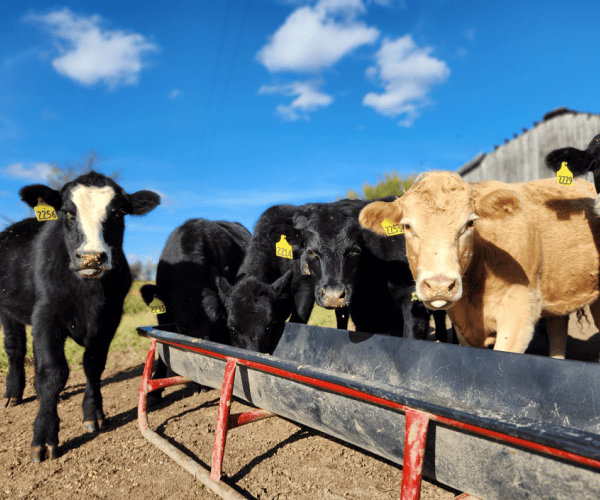
If you have other animals like a horse or donkey, then your cow may be happy. But just keep in mind that cattle are herd animals.
How Many Acres Does a Cow Need
When thinking about raising cattle, you’ll want to keep in mind how much land you have available. Cows need about 1.5 to 2 acres of land for a cow/calf pair. Which means you can have about 5 momma cows and their calves for 8-10 acres.
Other things to take into consideration are how good the land is and if you will also be feeding the cattle any grain.
Cultivate Good Pasture
When you first start raising cattle, you may assume all grass is the same, but it is not. Just because you see green “grass” out in your pasture doesn’t mean there is actually nutritious grasses that are good for cattle.
You can reach out to your local county extension office for information on local grass and a soil testing kit. You may also want to do a little research on what grass is best for cattle by reading this article here.
If your farm allows, it is best to rest pastures, to allow the grasses to grow back. This allows for the best use of your land resources. You want to be careful to not allow your cattle to over graze a field otherwise it takes too long for your pasture to recover.
Equipment Needs for Beginner Cattle Farming
When you first bring home your calves, you don’t need a lot of equipment for the first few months. But if you decide to continue with cows it soon becomes apparent that you need a few pieces of equipment.
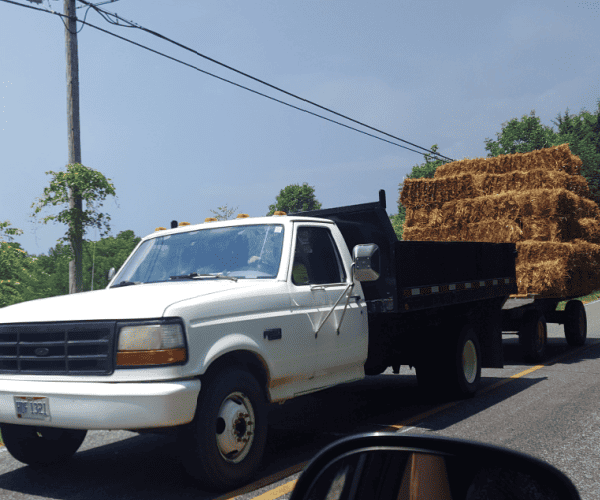
Pasture Land. As we mentioned above, you will need pasture. Feeding cattle all hay or feed is too expensive year around. So you will need land with pastures. You may live in an area where you can rent pasture ground. Pasture ground is much less expensive than renting grain fields. This makes renting land for cattle an affordable option if you wish to grow your cattle business beyond the land you strictly own.
Feed and Water Trough. Cattle need water. A lot of water. So you will want to have a watering trough big enough that you don’t have to fill it every day. Because the more you have to fill the watering trough, the more chances you have of forgetting to turn off the water! Ask me how I know! Yikes!
A cattle feeder is necessary to pour feed into. And if you are feeding hay, you will need a hay ring. Yes, you can put hay on the ground, but you will save a lot of hay if you put it in a ring. Otherwise the cattle will step and poop in half of the hay, wasting a lot.
Truck and Trailer. A truck and trailer are the next basics you would want to acquire. You cannot move cattle to land across town that you may have found a good deal on renting if you can’t move your cattle. And you can’t pick up cattle from auction or take your cattle in for processing without a truck and trailer.
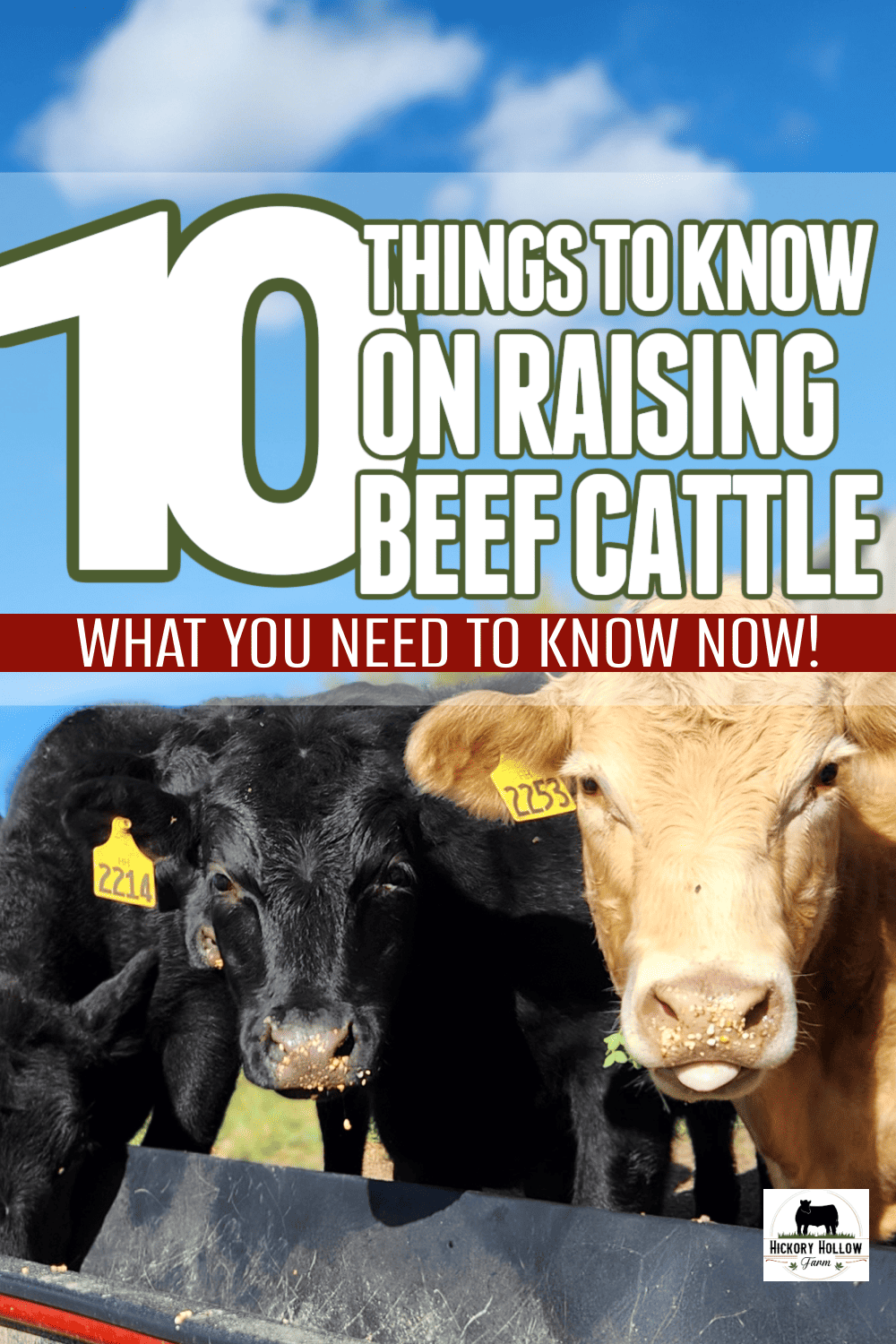
But remember, you may barter with a local farmer to pay them to transport your cattle if you only have a few. Or you may find an old beat up truck and horse trailer that will do the job too. Our first truck was a dump truck! We used the dump truck to finish building a house we gutted and remodeled. And the dump truck worked good enough those first years to transport cattle. Granted, we were not traveling in style, but when you are hustling, good enough will do.
Cattle Chute. A cattle chute holds a cow so that you can do pregnancy checks, safely administer shots, and check for general health. A cattle chute is not necessary in the first year, but if you are going to raise cattle, a cattle chute is something that you will soon want to invest.
Housing and Fencing Infrastructure for Cattle
Good news, cattle like to be outside and do best health wise if they are outside.
Barns. I know we all see the pics of the cute cows snuggled in straw in a barn, but often cattle get sick if they are stuck inside all together too long. For basic needs, cows prefer to be out in the pasture. If you can afford an open air or well-ventilated barn, they will like to use it occasionally. But if a brand new barn that will cost you almost as much as your house is not in the budget, cattle will be fine.
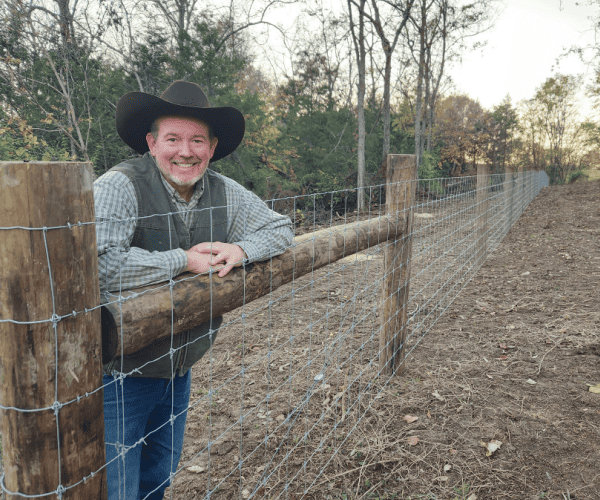
Shade and Trees. One caveat. You do need to give your cattle reprieve from cold winds and the sun. So if you live in a flat area, you will want some kind of wind break for them for winter time, either trees or purchasing a wind break. And cattle definitely need shade trees or outbuildings, to keep cool during hot summer days.
Fencing. Now the bad news. You need fencing. Fencing is expensive and takes a lot of work to put into place. You can buy cheaper temporary fencing that you move around for more rotational grazing. But at the end of the day, you do need good fencing around the perimeter of your land.
Water for Cattle
As I already mentioned, cattle drink a lot of water. You have a couple choices when it comes to water for your cattle. Hopefully, you may have water on your farm through a spring, creek, or pond. The benefit to a spring, creek, or pond is that it is free water. But the downside is that the creek and pond water can freeze in the winter and be gone during a dry summer. Springs are amazing and will keep providing water year-around!
Another cattle water option is using a cattle water tank that you fill from a spicket on your farm. You will need to remember to fill the tank AND turn the water off. It will cost money, but it is reliable. And you can put a tank heater like this one, in the bottom of your water trough in the winter to keep the water from freezing.
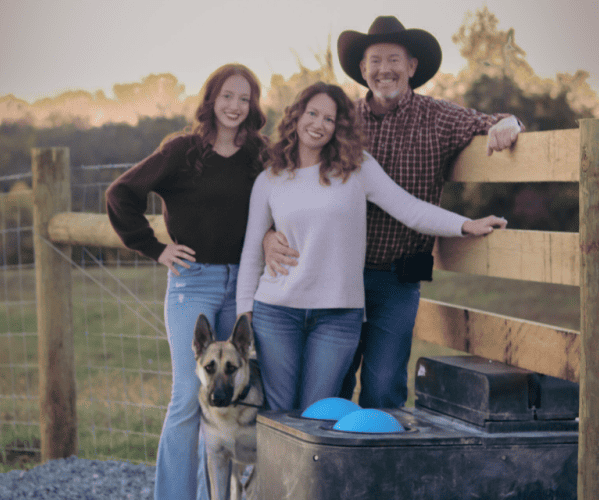
Lastly, cattle waterers are the ultimate! The water is piped in from underground and delivered into a waterer with a ball. You do pay for the water. But due to the ingenuity of the waterer, the water will not freeze until it gets really cold for days and then the ball may freeze.
However you handle watering your beef cattle, it is best to have a back-up in place. We have had odd things happen. Once the water company turned off the water line to do repairs but forgot to notify us. Another time, we had two water systems break at the same time, totally unrelated to one another, but unfortunately, timed perfectly to coincide with one another!!
Working with Veterinarians
A good veterinarian is an important part of your beef cattle farm team. Cattle vets will come out to your farm and take care of pregnancy checks, shots, castrating bulls, and overall health.
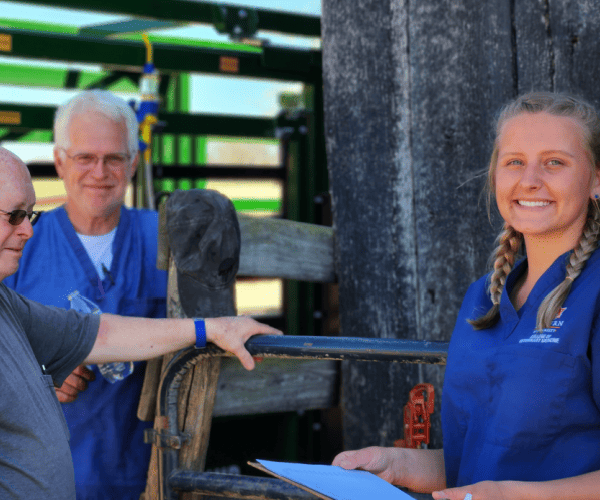
Paying for a vet visit is an expense, but in comparison to taking your four-legged fur baby to the vet, it actually is not a ton more. And vets typically only visit a couple times a year.
Marketing and Selling Cattle
The last piece of the puzzle is marketing your beef cattle. If you decide your farm goal is to develop a part-time or full-time beef business then you will need to sell your cattle.
You can take your cattle to the local auction and sell there. Or you can finish out your cattle (til about 18 months-2 years) and sell direct to local families.
Selling at the local auction is easier since you take them and drop them off and are not interacting with the public. But the downside is that you don’t control what happens to your cattle after they arrive or control the price.
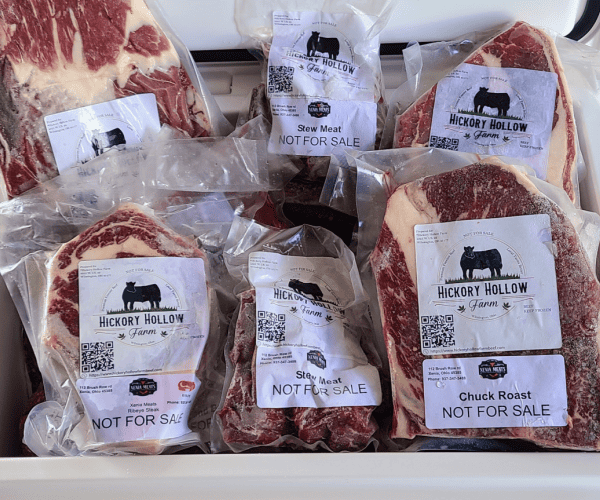
Selling direct to customers takes more time as you spend time marketing your business and interacting with customers. But it can be very rewarding since you do get to talk with local families and build relationships. You control the price a bit more (you still can’t control feed, hay, seed, and diesel prices). And you know that your beef is going direct to provide food for local appreciative families which is very rewarding!
Raising Beef Cattle for Beginners: 10 Things to Know
There is so much to know about raising cattle! But these 10 things to know about raising beef cattle will get you started in the right direction!
What are you most excited or concerned about when it comes to raising beef cattle?

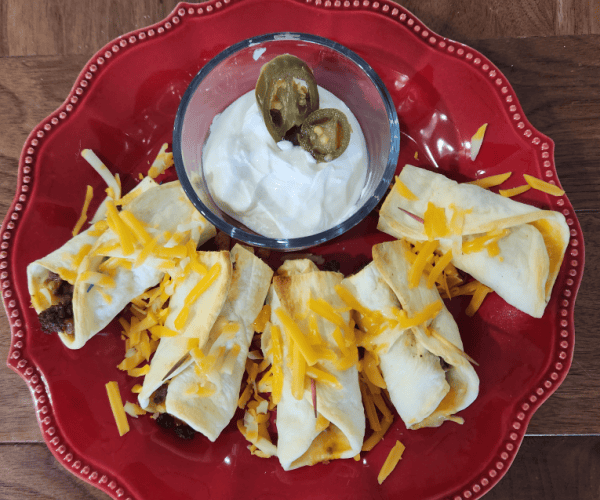
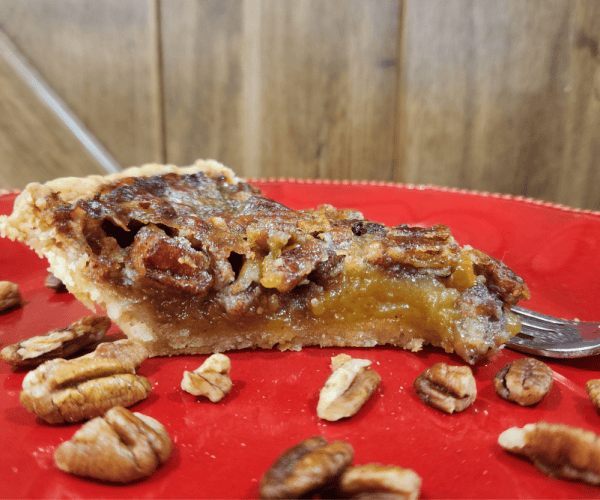
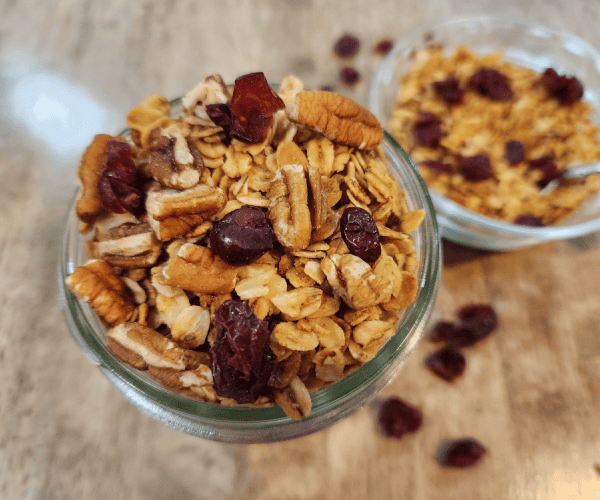
6 thoughts on “Raising Beef Cattle for Beginners: 10 Things to Know”
Thanks for your website and your information. I’ll be coming back here often. I’m 70 years old and have no health problems. The farmer who has been using our pastures is older and has had a stroke. He’s back to farming, but in a limited capacity. I’m afraid he will decide not to do this any longer and we do not want to lose “our” cows. We’re in NE Georgia and I don’t even know what kind of grass we have. Guess I need to ask him. It is a cow/calf operation. I’m scared I’m too old to learn this from the ground up, but I want to, our daughter will be learning with me. He’s been using the fields for a couple years and my mother-in-law had someone else using the property before him. I guess I would need, because it just seems to be something I would need, to do testing on the soil because I’m not sure how healthy the grass really is. There are lots of weeds that I would like to get rid of – that can’t be good for the cows, but I’m not a poison user.
Hi Susan, glad you currently have someone renting your fields. It is a lot to learn. Most land is in high demand if you are willing to commit to renting it to the same person for several years. A lot of work does go into cultivating healthy pastures. So the right person may offer lower rent the first several years, but also commit to spread manure and fertilizer to rebuild the field if it has been over grazed or not enough good things put back into the land. Also, reach out to your local extension office. There are often tons of free classes you can attend to learn more and gain more farming connection within your community. Take Care, Miranda
Good information we’ve started cattle business too but still learning I’ve always want more information about their shots which ones are good so far it’s fun my boys like it also my husband.
Caroline, I am so glad you found the information helpful. When looking to protect your cattle herd, work with your local vet. They will know best what diseases or concerns are prevalent in your specific region of the country. You may also want to talk to a local farmer or two that you trust.
I met a lone steer purchased by a neighbor for a small amount. He is the only steer on the property which is essentially a horse ranch to provide comfort in this type of care (Mental Health). I used to work on a dairy farm in my early years but have never experienced such a docile steer! This sounds ridiculous to any cattle operation but my neighbour wants to keep him as part of mental health treatment for others. (And yes I am of sound mind) I realize this might seem a little off the norm (did I say norm?) but over the past 4 weeks, he responds to my presence and his name ‘Tater’. I’m welcomed in his pen and he just
gets up when I call him and scratch his neck and ears. (WT Heck?) Last visit when I thought he was non-verbal upon leaving he let out 2 bovine ‘moos?’ Of course I know that they need pasture and comfort from the wind and other weather elements. On my last visit I brought a 5 lb block of salt and he was un accustomed to this. Bizarre as this may sound, he’s bovine therapy for my PTSD. Never in my life with cattle would I have ever thought of even approaching a steer. Your kind , sensitive and realistic thoughts on this matter and as applicable to my therapy? Thank you. Maurice Rio
Hi Maurice, We have a couple cows that like a scratch or head rub. But most of our cattle only seem interested in us when we have food. They prefer each others company and still seem “wild” even if we raised them. But our cattle do seem comfortable around us because we treat them well. However, I have seen different breed of cattle respond more to humans. So anything is possible. Glad that God is using his creatures to be a comfort to you. – Miranda